Presentation
Archives and, therefore, art archives as well, are no longer understood as organic series of immobile documents produced by a person or an institution; they are constantly changing living places containing documents that are permanently activated, by archivists, students and researchers. Moreover, modern archive doctrine has omitted the concept of author in the archive, despite the fact that some archivistic practices turn the action into a joint creation, with multi-authorship, in which every step, activation or process creates a semantically new document that involves an author.
In this context, the Museu Nacional d’Art de Catalunya and the Museu Picasso Barcelona are pooling knowledge and resources to organize an International symposium on archive practice in 21st-century art that will bring together archivists, curators, artists, historians and researchers from all over the world.
SCIENTIFIC COMMITTE
- Pilar Cuerva, Head of Centre de Recerca i Coneixement (CREC) of the Museu Nacional d’Art de Catalunya
- Sílvia Domènech, Head of the Centre de Coneixement i Recerca of the Museu Picasso Barcelona
- Jorge Blasco, Researcher, writer and curator
- Mela Dávila, curator and consultant on art archives and artist’s publications
- Remei Barbero, Archivist of the Museu Nacional d’Art de Catalunya
- Núria Solé Bardalet, Archivist of the Museu Picasso Barcelona
The International symposium revolves around two coincident essential actions: ARCHIVING understood as a practice constructed reflexively and EXHIBITING understood as the territory in which archiving becomes a public act.
Speakers
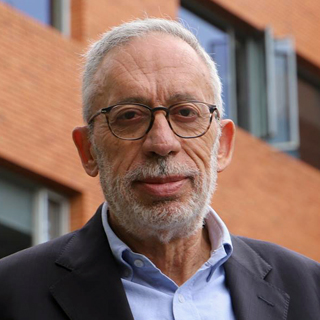
Arxius polièdrics, continguts plurals

Ramon Alberch i Fugueras has a degree and a PhD in History. He was the co-founder and president of the non-governmental organization Archivists Without Frontiers (1998-2005 and 2012-2020) and the president of the Municipal Archives Section (2000-2004) of the International Archives Council (ICA-SMA).
He was the director of the Municipal Archive of Girona (1978-1989), the Municipal Archive of Barcelona (1990-2004), the Municipal Institute of History of Barcelona (1992-1997), and the president of the Association of Archivists of Catalonia (1986-1993). He directed the archives systems of Catalonia (2004-2010) and was the director of the Graduate School of Archival and Records Management of the Autonomous University of Barcelona (2002-2016).
He is a guest professor at the following universities: Autonomous, Barcelona, Carlos III, Madrid, Andina Simón Bolívar, Quito, IGlobal, Santo Domingo and Pontifícia Javeriana, Bogotá. He has been a member of the International Advisory Council of the National Centre for Historical Memory in Colombia (2015-2018) and an international advisor to Special Jurisdiction for Peace in Colombia (2019-2020). He is a member of the Management Committee of the Archives and Human Rights Section (ICA-SAHR) of the International Council of Archives.
He is also a member of the technical Committee 50/SC1 of the Spanish Association for Standardization-AENOR, of the Group of Experts of the Ibero-American University Teaching Network-RIBEAU and Coordinator of the Cultural Dynamization of Archives Working Group of the Association of Latin-American Archivists. At the Archivistics Symposium held in Rome (September 2022) he was awarded the distinction of “ICA Fellow”, the highest recognition awarded by the International Council of Archives.
He has been a speaker at numerous conferences and symposia and the author of 40 archivistics and history essays and manuals. His latest works are: “Archivos y Archiveros en la literatura y el cine” (in collaboration with Rocío Ponce Almeida, 2021) and he has coordinated the book “Del hilo al ovillo. Poder y resistencia de los archivos” (2021).
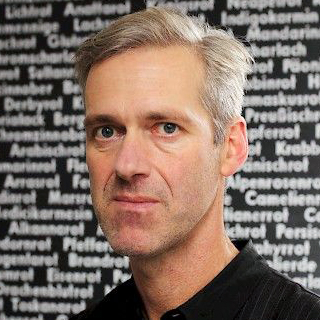
Productive Archiving: Archival Practices by Artists

Ernst van Alphen is professor emeritus at Leiden University. His many publications include the following books: Francis Bacon and the Loss of Self (1992), Caught by History: Holocaust Effects in Contemporary Art, Literature and Theory (1997), Staging the Archive: Art and Photography in Times of New Media (2014, also translated into Spanish), Failed Images. Photography and Its Counter-Practices (2019; also translated into Spanish), Seven Logics of Sculpture (2022), Productive Archiving: Artistic Strategies, Future Memories, and Fluid Identities (in press).
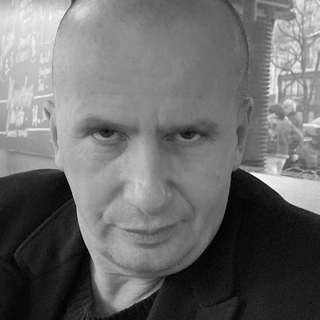
Maniements d’archives

Philippe Artières researcher in history at the CNRS (Iris/EHESS, Paris-Condorcet), has devoted his research to the contemporary history of writing, about which he has published various works, including La experiencia escrita. Estudios sobre la cultura escrita contemporánea 1871-1981, (Buenos Aires, 2019).
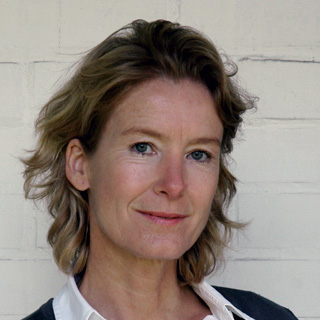
Archives on Show

Beatrice von Bismarck is professor of Art History and Visual Culture at the Academy of Fine Arts (Hochschule für Grafik und Buchkunst) Leipzig, where she also teaches visual culture and cultures of the curatorial. Previously, she worked as a curator in the department of 20th-century art at the Städel Museum, Frankfurt and taught at the Leuphana University in Lüneburg, where she was co-founder and co-director of the Kunstraum. In Leipzig, she was initiator of the MA program Cultures of the Curatorial, which began in autumn 2009. She also co-conceived and co-directed the 5th Moscow Curatorial Summer School (2016) and the itinerant TRANScuratorial Academy, which toured from Berlin to Mumbai and Phnom Penh in 2017-2018. In 2018 she was Philippe Jabre Visiting Professor of Art History and Curating at the American University of Beirut. For her research project on the “Curatorial” she was awarded the Opus Magnum Fellowship of the Volkswagen Stiftung, Hannover (2015-2017).
Publications include Cultures of the Curatorial (ed. with Jörn Schafaff and Thomas Weski), 2012; Timing - On the Temporal Dimension of Exhibiting (ed. with Rike Frank, Benjamin Meyer-Krahmer, Jörn Schafaff, and Thomas Weski), 2014; Hospitality - Hosting Relations in Exhibitions, (ed. with Benjamin Meyer-Krahmer), 2016 (all Sternberg Press, Berlin); Now–Tomorrow–Flux: An Anthology on the Museum of Contemporary Art (ed. with Heike Munder and Peter J. Schneemann), JRP|Ringier, Zurich 2017; Curatorial Things (ed. with Benjamin Meyer-Krahmer), Berlin 2019, and O(f)f Our Times: Curatorial Anachronics, (ed. with Rike Frank), Sternberg Press, Berlin 2019. She has just edited the volume "Archives on Show. Revoicing, Shapeshifting, Displacing - A Curatorial Glossary, 2022 (Archive Books, Berlin) and her monograph, "The Curatorial Condition", came out in 2022 (Sternberg Press, London).
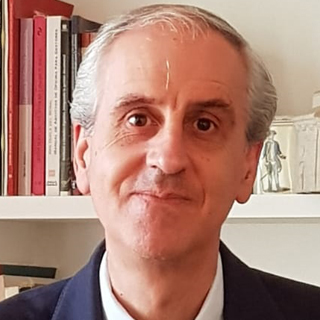
El documento a través del arte: un recorrido por las representaciones de los documentos de archivo en las obras de la National Gallery. (The document through art: a journey through the representations of archival documents in the National Gallery)

José Luis Bonal Zazo has a PhD in Documentation from the University of Salamanca, a degree in Geography and History (specializing in Medieval History) and a Diploma in Library and Information Science from the same university.
He is currently a lecturer in the Faculty of Documentation and Communication Sciences at the University of Extremadura (Department of Information and Communication) where he has taught since 1995 and has received two teaching excellence awards.
He has participated in teaching activities at other Ibero-American Universities: University of Salamanca, Universidad Tecnológica Metropolitana in Santiago de Chile, University of Seville, International University of Andalucía, Universidad de la Salle in Bogotá, Universidade Federal de Santa María (Marilía), University of Coimbra, Carlos III University in Madrid, Universidad Estadual Paulista, and Universidade Federal Fluminense in Río de Janeiro.
From 2014 to 2022 he was head of the University of Extremadura’s Documentation Sciences Faculty Quality System. He has also taken part in processes of verification, accreditation and certification of university qualifications carried out by various university quality agencies.
He is the author of different articles to do with the theory and practice of archivistics, paying special attention to archive description. He is the author of the book La descripción archivística normalizada and co-author of works such as Manual de Descripción Multinivel, Curso de Archivo y Documentación o Estudos avanzados de Arquivologia.
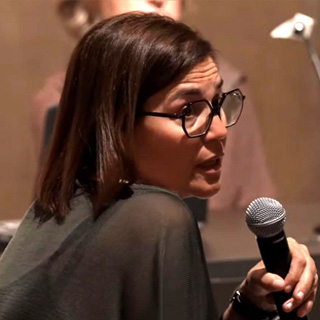
Els límits de la voluntat en els arxius dels artistes. El fons Hermen Anglada Camarasa com a exemple

Pilar Cuerva She has a degree in Geography and History (UNED, 1999), a Master’s in Strategic Knowledge and Information Management in Organizations (GEICO), a Higher Diploma in Archival and Records management (ESAGED), a Post-graduate degree in Electronic Records Management (ESAGED-UAB), a Post-graduate degree in New Trends in Information management (UJI) and a diploma of Specialist Higher Studies in Comparative, Social, political and Cultural History and in Research Aptitude (UAB).
On a professional level, she was the promoter and director of the Information Management Project (GIM) and the Information Resources coordinator (RIM) of the Museu Marítim in Barcelona (2010-2018), and the manager of that institution’s archive (2007-2018).
She has coordinated the biennial Jornada de museus, gestió documental i arxiu (2008-2018) and the symposium El repertorio iconográfico [de Arte] de España (2022): La aventura de documentar el patrimonio. She has been a teacher on courses related to archivistics and records management and has taken part in discussion panels and as a speaker in various archive, library and museum forums, such as the Congrés d’Arxivística de Catalunya (2013), the Jornades Catalanes d’Informació i Documentació (2018), and Encuentros de Centros de Documentación de Arte Contemporáneo (2016 and 2022), among others.
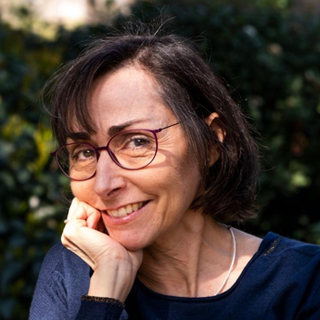
Archive Brigitte Baer Case: a stratigraphy

Sílvia Domènech Fernández Fernández is a historian and archivist, with over 30 years’ experience in the conservation and diffusion of the documentary and photographic patrimony of museums and archives. She was the Director of the Photographic Archive of Barcelona from 1997 to 2007, and has been head of the Research and Knowledge Centre of the Museu Picasso in Barcelona since 2010. Since the beginning of her professional career, she has combined the management of the patrimony with university lecturing on archives and photographic collections, as well as other cultural diffusion activities. She is the author of Tesaure BIMA (1997), and of various articles and monographs on reflection and praxis with regard to photography, archives, and the life and work of Pablo Picasso. She is the co-author of Norma de Descripció Arxivística de Catalunya (2007) and Manual del mètode de descripció del sistema AIDA (2003). She was the director of the project and the publication Barcelona fotografiada: 160 anys de registre i representació (2007), and the curator of exhibitions on photography and archivistic practice, especially about Barcelona or Pablo Picasso, such as: Amadeu i Audouard, fotografies d’escena (1997); Montjuïc 1915, primera mirada (2007); Picasso 1936. Empremtes d’una exposició (2011); El Museu Picasso. 50 anys a Barcelona. Els orígens (2013); Lucien Clergue. Vint-i-set encontres amb Picasso (2017); David Douglas Duncan. La mirada còmplice (2018) and Brigitte Baer. Picasso i els gravats (2022).
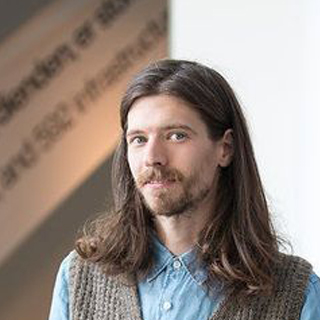
Reactivating Historical Archives in Art and Design Museums

Michael Karabinos is a lecturer of Archival and Information Studies at the University of Amsterdam with a research focus on colonial, seized and displaced archives. He received his PhD from the Leiden University Institute for History. From 2016-2019 he was a Deviant Practice research fellow at the Van Abbemuseum (Eindhoven, the Netherlands), where he has developed and curated exhibitions on the museum’s colonial roots using archival material. He is currently a member of the Collecting Otherwise working group at Het Nieuwe Instituut (Rotterdam, the Netherlands) and is involved with various archival projects with the museum’s National Collection for Dutch Architecture and Urban Planning. His work has been published in the book Displaced Archives as well as the journals Information & Culture, and Bijdragen tot de taal-, land- en volkenkunde and Archival Science, among others. He is co-editor of the book Colonial Legacy in Southeast Asia: The Dutch Archives.
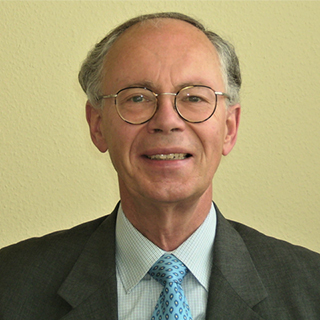
Archive Art

Eric Ketelaar was General State Archivist (National Archivist) of The Netherlands from 1989-1997. He held the Archivistics chair in the Department of History, University of Leiden, 1992-2002 (part-time). See www.archivistics.nl
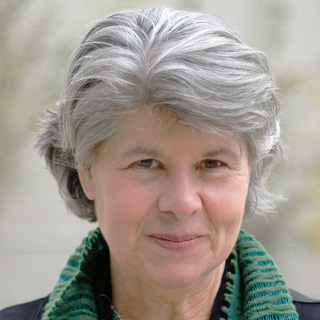
Art, Artifice, Archives: Considering the links between facts, evidence and truth

Laura Millar has worked as a consultant for nearly 40 years, in the fields of records, archives, and information management; education and training; and editing, writing, and publishing. She received her Master of Archival Studies degree from the University of British Columbia, Canada, in 1984, and her PhD in Archive Studies from University College London in 1996.
Laura has consulted with governments in such diverse countries as Canada, Bermuda, Trinidad and Tobago, Hong Kong and Ghana, and she has worked with universities, colleges and other educational institutions in Canada and internationally. She has also provided consulting services to churches, non-profit organizations, First Nations governments, international associations and other agencies. She was the Managing Editor for the International Records Management Trust, writing and developing a series of training resources on records and archives management, completed in 1999, and she oversaw development of a second series on electronic records management, completed in 2009.
Laura taught for many years in the fields of records and archives management and editing and is the author of dozens of publications and presentations on various topics related to records, archives, editing and education. Her books include The Story Behind the Book: Preserving Authors’ and Publishers’ Archives, (CCSP Press, 2009) and Archives: Principles and Practices (Facet, 2010, rev. ed. 2017). She received the Society of American Archivists’ Waldo Gifford Leland Award in 2011 for Archives: Principles and Practices, for ‘writing of superior excellence and usefulness in the field of archival history, theory, or practice.’ .
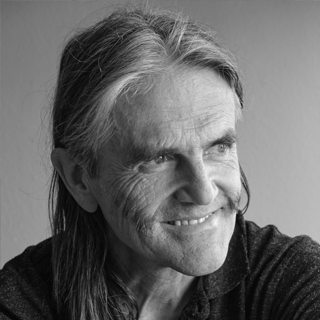
La vida de les obres. (The life of works)

Perejaume (Sant Pol de Mar, 1957) Perejaume is an artist and writer. His work combines painting, sculpture, the written word, action, video and sound, questioning the relationships between nature and culture. In 2005 he was awarded the Generalitat de Catalunya’s National Prize for the Visual Arts, and in 2006, the Ministry of Culture’s National Prize for the Plastic Arts. Among his best-known interventions and exhibitions are the medallions in the Gran Teatre del Liceu (1999), the retrospectives Deixar de fer una exposició (MACBA, 1999), Ai Perejaume, si veies la munió d’obres que t’envolten, no en faries cap de nova! (La Pedrera, 2011) and maniobra de Perejaume (MNAC, 2015). His books include Pagèsiques (Edicions 62, 2011, City of Barcelona prize and Lletra d’Or Prize, 2012), Paraules locals (Tushita edicions, 2015), and Treure una marededéu a ballar (Galàxia Gutenberg, 2018).
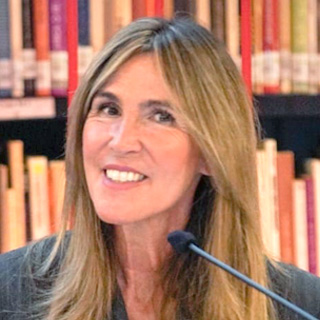
The Muses and the Archive

Debora Rossi Graduated in Law from the University of Padua and PhD in Roman and Classical Law. Following her legal traineeship at the Avvocatura Distrettuale dello Stato in Venice, she became a member of the Venice Bar Association - Albo degli Avvocati di Venezia – Elenco speciale degli Avvocati degli Enti.
She is currently Managing Director of Human Resources, Legal and Institutional Affairs at La Biennale di Venezia, as well as Deputy Director General of the institution. She is also Head of the Historical Archives of La Biennale di Venezia– ASAC.
She has worked at La Biennale since 1996, first as the Legal Office Manager, supervising the planning and management of the legal affairs, contracts and in-house procedures within La Biennale di Venezia Foundation, and in particular within its specific departments: Arts, Architecture, Cinema, Dance, Music, Theatre and the Historical Archives (ASAC).
Since 2009 she has been the Executive Manager for the reorganization and enhancement of the collections of the Historical Archives. As the Head of the Historical Archives, she is also responsible for the project to create the International Centre for Research on the Contemporary Arts at the same archive. She has worked as an assistant professor for the chairs of Roman Law Institutions and History of Roman Law. She is the author of many articles on specialized topics and on public contracts. From 2016 to 2019, she was a member of the Board of Ales SpA
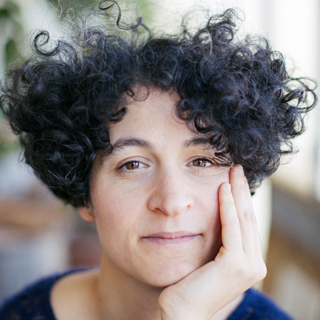
Into Sugar We Could Have Turned

Mireia c. Saladrigues (Terrassa, 1978) is an artist and researcher or, rather,
an
artist-researcher.
Her projects are constructed from wide-ranging processes of research,
and the
particular
methodologies of research are based on artistic practice.
Saladrigues is a candidate for the International Doctoral Programme (DFA) of the Academy of Fine Arts of the University of the Arts (Uniarts) Helsinki. Behaving Unconventionally in Gallery Settings records cases of alteration (human and non-human) in cultural practices, proposing an artistic and theoretical rereading of non-conformity.
Her professional career is widely recognized. The most recent grants are from the Suomen Kulttuurirahasto (2022), Taike (2021) and Beques Premi Ciutat de Barcelona (2021). She has just finished a residency at the Spanish Royal Academy in Rome (2021-2022).
Her work has been exhibited in solo and collective exhibitions in Europe, the United States and Asia. Her work is in the collections of the Fons Nacional de Catalunya, MACBA and ICUB, and also in private collections.
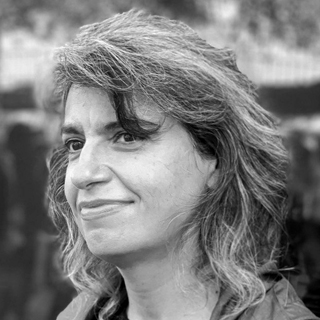
Sala Colonial Project

Catarina Simão (b. 1972 in Lisbon) ) is a Portuguese artist living and working between Portugal and Mozambique.
Simão’s practice is built upon long-term research projects that entail collaborative partnerships and different forms of presentation to the public. Heavily influenced by the narratives of history, Simão started in 2009 a strong connection with Mozambique and its institutional memory. Her research on the Mozambique's Liberation Struggle resulted in videos and installations that resort to a re-appropriation of photography, documentation and film footage, creating pieces such as These Are the Weapons (2012), Mueda 79 (2013), Effects of Wording (2014) and Ntimbe Caetano (2016). Simão's work is shown internationally since 2009, namely at Serralves Museum, Manifesta 8, Reina Sofia Museum, Ashkal Alwan, New Museum, Kiev School, EVA International, transit Gallery, Garage Museum, 17 Istanbul Biennial, Frac Nouvelle-Aquitaine MÉCA, among others.
In her solo exhibition R-Humor (Galeria Av. Da Índia, 2020, Lisbon), Simão approached the silencing and suspension of information, such as censorship and humour, appearing as a form of relation in the face of the incompleteness of the archive. She is currently developing in Lamego, Portugal, the Sala Colonial project (2021-2023) upon invitation of Lamego Museum and Escola Secundária de Latino Coelho; within this project, Simão pedagogically examines the resistance of the colonial archive in conceiving the very idea of representation in its link to violence, in view of its dominant tradition and routines. In Mozambique, the artist develops her intervention in a social context through collaboration with civil associations and institutions such as the National Film Institute (INICC) and Centro de Estudos Africanos of Universidade Eduardo Mondlane. She codirected a film for Mozambican TV called Djambo in 2016, and in 2019, she co-organized with Oficina de História (Mozambique) the 1st Seminar on Restitution of Cultural Heritage to Mozambique (CCFM, May 2019)
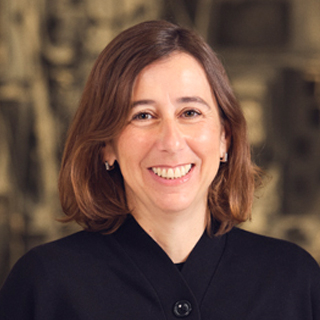
Archive Brigitte Baer Case: a stratigraphy

Núria Solé Bardalet (b. Calafell, 1976) She graduated in Art History and Italian Philology from the University of Barcelona. Since 2020 she has been the archivist of the Research and Knowledge Centre of the Museu Picasso in Barcelona.
From 2008 to 2020 she was head of the Archive Department of the Antoni Tàpies Foundation, where she took part in the creation of the ‘Arts Combinatòries’ archive project directed by Laurence Rassel. In those years she coordinated the European projects ‘Performing the Museum’ and ‘4Cs: From Conflict to Conviviality Through Creativity and Culture’. At the Antoni Tàpies Foundation Archive, with curatorship by Oriol Fontdevila, she promoted and designed the educational project ‘Prototips en codi obert’, where archive practice in relation to contemporary art was the theme of reflection.
In 2022, together with Sílvia Domènech and Emmanuel Guigon, she curated the exhibition ‘Brigitte Baer: Picasso and Engravings’.
Discussion moderators
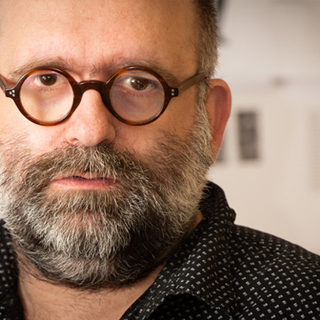

Jorge Blasco Gallardo (Barcelona, 1972), is a researcher, writer and independent curator. He has devoted most of his career to the study of archives and their activations, and everything having to do with the verb to archive.
He has been an advisor to the Territorio archivo project of the FCAYC (Leon), with which he regularly collaborates. Examples are the curation of the exhibition Mesuras or his consulting for the creation of the aforementioned institution’s document management system.
As a teacher he has dedicated himself to the didactic development of everything that is not art, but without which it could not exist (Elisava University School, Barcelona).
His best known work is the Archive Cultures project in its four editions (Fundació Antoni Tàpies, University of Valencia, University of Salamanca, Regional Government of Castile-Leon) under the titles: Archive Cultures; Memory, Identity and Identification; Collections and New Documents and Representations.
He collaborated with the Research Centre of the Museu Picasso in the analysis of the Brigitte Baer archive.
As a researcher, he stands out for his work directing the group Archivo, Arte, Ciencia y Sociedad (Fundació Antoni Tàpies, ESAGED, Museu Picasso).
He has recently edited the book Archive for the Virreina Centre de la Imatge, together with Eric Ketelaar, Joan Marie Schwartz and K. J. Rawson.
His latest publication is Gabinete Voula Papaioannou, published by the Virreina Centre de la Imatge (Barcelona), Luis Seoane Foundation (A Coruña) and the Photographic Archives of the Benaki Museum (Athens).
He currently advises FCAYC (Leon) on the management system dedicated to the Archive-Collection; the Díaz-Caneja Foundation (Palencia) on the new arrangement of the collection in terms of archiving; and he is engaged in the study, exhibition and analysis of the documentation collection on the tattoos of the Fang people of Equatorial Guinea, preserved in the Museum of World Cultures, for the KJCC at NYU (New York).
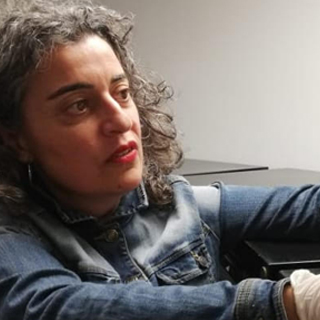

Mela Dávila Freire (O Grove, 1970), combines research, writing, curating and translation, always in the area of art archives, artist publications, bibliographic collections and other related fields. Her fields of interest include the theoretical and practical intersections between archives and art collections, ideological biases in archival structures, and the feminist review of the gender of artist publications.
As a consultant and independent researcher, she has collaborated with the documenta archiv (Kassel, Germany), the Deutsches Historisches Museum (Berlin, Germany), the Archivo Lafuente (Santander, Spain), the Museo Reina Sofía (Madrid, Spain), the Biblioteca de las Artes (Guayaquil, Ecuador), ArtsLibris (Barcelona, Spain), the Cervantes Institute, etc. and other public and private institutions and collections. Among her institutional responsibilities, at the Museu d’Art Contemporani of Barcelona she was in charge of the Publications Department and, later, she directed the Study Centre (CED). At the Museo Reina Sofia she was director of public activities.
Her most recent book, Mission and Commission: documenta and the Art Market, 1955-1968 (Barcelona: Polígrafa, 2022), explores the relationship between the first documenta and the emerging art market through the publication of multiple graphic works. Among her translations are essays such as that of Linda Nochlin, Why Have There Been No Great Women Artists? (Barcelona: Paidós, 2022), and catalogues of exhibitions such as Nancy Holt / Inside Outside (Barcelona: MACBA, 2023, in preparation). Her next exhibition, with a selection of artist publications from Latin American women artists, will take place at the Center for Book Arts in New York in the fall of 2023.
Mela Dávila Freire holds a degree in English-German Philology (Universitat Autònoma de Barcelona) and a degree in publishing (Pompeu Fabra University), and is currently a doctoral candidate at the University of Fine Arts (HFBK) Hamburg.
Programme
Museu Picasso
MORNING - ARCHIVINGDiscussion moderated by Jorge Blasco, researcher, writer and curator
Participation of all the speakers in the morning session
AFTERNOON - EXHIBITING
Keynote speech
Practical cases
Discussion moderated by Mela Dávila, independent researcher, curator and consultant on art archives and artist’s publications
Participation of all the speakers in the afternoon session
Museu Nacional d'Art de Catalunya
MORNING - ARCHIVINGDiscussion moderated by Jorge Blasco, researcher, writer and curator
Participation of all the speakers in the morning session
AFTERNOON - EXHIBITING
Keynote speech
Practical cases
Discussion moderated by Mela Dávila, researcher, curator and consultant on art archives and artist’s publications
Participation of all the speakers in the afternoon session
Mireia c. Saladrigues, visual artist and researcher
Abstracts
Archives are important because they preserve documents, images and material objects; and on the basis of what archives collect, memories can be activated and stories can be told. There is no reason to idealise archives though, because they are, by definition, based on inclusions and exclusions, as a result of which, only part of the story or only specific stories can be told. On top of that, it is impossible to escape the homogenising effect of the archive with its conventional categorisations and classifications. In his presentation, Van Alphen will focus on some archival practices by artists, how they challenge the problem of archival homogenisation and classification, and how they make use of archives in order to explore alternative historical knowledge and narratives.
Ramon AlberchThe idea is to represent the multifaceted nature of the archives, the remarkable diversity of their informative content (which each user/researcher will get the most out of it) and the plurality of interlocutors, from all kinds of disciplines. This will be achieved through the presentation of six cases of certain relevance, referring to the archive as a space of power and secrecy, as a depository of the “new” memory, as a literary and cinephile object, as a witness to a reconstructed past, as a forerunner and repository of universal knowledge, and finally, to show the importance of apparently “harmless” documents, which deserve to be destroyed due to their apparent irrelevance but which, put in context, reveal extraordinary stories.
Philippe ArtièresOld papers do not become archives until they have had a long life: a series of gestures, that, first of all, have the fact of archiving: archives are living objects that we handle, transfer and show according to different methods: by composing albums or collections, or organizing small displays during family meetings. Archives, in order to be maintained as such, are transformed, manipulated, eroded … How can we transfer these vernacular practices to institutional places of heritage (the museum or archive centre)?
Beatrice von BismarkArchives on Show brings the productive and at the same time ambivalent relationship between archive and exhibition into focus. It starts from the assumption that only when the exhibition becomes recognisable as different from the archive, does the archive come into view in its own constructedness. In other words, particularly in the deviation of the curatorial situation of the archive, do the conditions under which the archive came into being become apparent, and they continue to exist today and could become relevant for the future. The talk will discuss curatorial procedures and strategies that participate in the reformulation of the aesthetic, social and political meaning and function of archives.
José Luis Bonal ZazoAn analysis of the representation of the archival document in the works of the National Gallery, London. Using a content analysis methodology, the representation of archival documents is studied, along with their relationship with the activities of people’s daily lives, in paintings from the 14th to 19th centuries preserved at the National Gallery in London. The study focuses on the following aspects: the chronological evolution of the image of the documents, the genres in which it is most common to find representations of documents, the functional environment and the sphere of activity in which the represented documents are found, the document types reflected in the works, and the way in which the documents are represented, in order to assess their relevance in the work and the intention of the author. The study will allow us to appreciate the image that the authors had of the documents in their time, and, by extension, the image of the documents in the society of the present day. The work represents a contribution to the history of the archival document, taking artistic works as a reference source.
Pilar CuervaIn the presentation, two epistemological aspects of the archives are analysed through the example of the artist Hermen Anglada Camarasa. On one hand, there is a quest for spontaneity in the organic creation of documents, reflected in the definitions that emanate from archival science, in contrast to the exercising of a desire to create the archive premeditatedly. On the other hand, there is the second aspect of reflection which addresses the temporal limit of the painter’s archive and how the character’s desire for transcendence overflows with the contour of the background, beyond the margins provided by archival science.
Sílvia Doménech and Núria Solé BardaletConsidering making the Archive of the Museu Picasso of Barcelona available to the scientific community, respecting its living and mutant identity and working in continuity with the Museum’s collection of works, the Brigitte Baer Archive case (Baer is a specialist and reference in the field of Picasso’s graphic work) is presented as an archival praxis that gives prominence to the framework and historicity of the archive. The process of creating this collection, its journey and its substance, invite us to propose stratigraphic equations in its design and to conceive a fluid representation through which to travel.
Michael KarabinosIn this presentation, Michael Karabinos will discuss how art and design museums can (re)activate their historical archives. Through cases at the Van Abbemuseum (Eindhoven, the Netherlands) and Het Nieuwe Instituut (Rotterdam, the Netherlands) Karabinos will explore various projects that involved exhibiting, acquiring and reimagining the archival collections of these museums. Particular attention will be paid to the Collecting Otherwise working group at Het Nieuwe Instituut and their work in the National Collection of Dutch Architecture and Urban Planning.
Eric KetelaarMany artists in making the “archival turn”, engage with a metaphorical archive. There is nothing wrong with that. It is worthwhile to observe how artists are engaging with the archive(s), if only because that can show how archives are situated in society. Nevertheless, this paper will argue that both artists and archivists, as well as the public at large, could benefit from exploring and comprehending what is lost and gained in the translation from the ontological and epistemological archive(s) into a “quasi-archival logic”. Such comprehension is essential in designing policies and practices for archiving living works of art.
Laura MillarFacts, evidence and truth are not the same. Without access to evidence, societies cannot understand fact-based truth. For millennia, archivists have been responsible for capturing, preserving and making available authentic and reliable sources of evidence. But as digital technologies transform the traditional archival role, the archivist is being pulled away from the care of static, “old” documentary sources, towards a much more interventionist role, actively capturing and recording the present. How should the archivist adapt to this changing role? What effect will this change in role have on archival work: from notions of provenance and ownership to the idea of the archivist as neutral custodian?
PerejaumeI believe in the experience of speech, in the word that is present when it takes place, wherever it is. Excessive anticipation rather spoils the possible vividness and possible surprise of everything that the word can come to tell us. I would appreciate it if you would trust me, as I trust my word, and, if I may ask, not anticipate my story. In fact, by now, beyond the name “The life of the works”, I still haven’t quite figured it out.
Debora RossiThe Historical Archive of Contemporary Arts (ASAC) has been collecting and preserving the documentary heritage of La Biennale di Venezia since 1895. The Archive, however, has also become a platform in which to create and develop new activities such as workshops, colleges, exhibitions and research projects. The artistic directors, as part of their assignment, also create specific exhibitions, using our archives materials. In 2020, a special exhibition was organised in the Central Pavilion at the Giardini, Le muse inquiete (The Disquieted Muses). When La Biennale di Venezia meets History, curated for the first time together with the artistic directors of the six Biennale departments.
Mireia c. Saladrigues
What does hammer blow to Michelangelo sculpture tell us about relationships with art? What sources of
information,
beyond archives and people, does an act of iconoclasm lead to? How was scientific data obtained from the
detached
fragments of the David? How can the marble dust be included when it is also a witness to the
attack?
During the performative conference, Saladrigues activates documents, narratives and other materials, while
navigating between police and scientific archives, speculative fiction, autobiography and geology. These
materials
fed the project
Crederrei, se fussi di sasso, produced in 2022 at the Royal Academy of Spain in Rome, and also will
be published in 2024 in Martellata, by Mousse Publishing
A collection of African artifacts belonging to the former National Lyceum of Lamego, in the North of Portugal, was placed in the custody of Lamego’s Museum in 1980. The inventory includes a colour photograph for each of the 288 pieces of the collection, but the description is brief, with gaps in the identification of provenance and the donor’s name. Regarding its previous use or other elements of the object’s life in Portugal, the inventory is silent. This poor level of information forces us to reproduce the general geographical reference “Africa” for their designation, protecting each of these pieces from contacting with their historicity – in the same way as the 19th century ethnographic archive did. In 2021, the Lamego Museum, in partnership with the Latino Coelho high school, invited Catarina Simão to develop an artistic and pedagogical project called “Sala Colonial” in reference to the room where, from 1938 onwards, those artifacts were displayed at the school, among maps, books, photographs, skulls of animals and a Portuguese padrão from the time of the “Discoveries”.
Practical information
Venue: Auditorium (Sala d'actes) of the Museu Picasso (Pl. Sabartés, 1) and auditorium
(Auditori)
of the Museu Nacional d’Art de Catalunya (Parc de Montjüic)
Language: The presentations will be given in the language of the title published in the
program.
Service of simultaneous translation into Catalan, Spanish and English is available
Price: 40 € (on site). Free (online).
40% reduction for the following groups:
- People between 18 and 25 years, and 65 years and over.
- Unemployed people or with the ‘Targeta Rosa Reduïda’.
- Card from the Catalonia public library network.
- University students with student ID.
- Amics Museu Nacional d’Art de Catalunya card.
- Members of Associació de Professionals de l’Arxivística i la Gestió de Documents de Catalunya.
Museu Picasso de Barcelona
How to get to the Museu Picasso in Barcelona
Metro
Line L4: Jaume I
Line L1: Arc de Triomf
Bus
120, 45, V15 i V17: Via Laietana
39, 51 i H14: Passeig Picasso
H14, 45 i 51: Pla de Palau
120: Princesa
Bicycle
See the nearest Bicing stations.
Museu Nacional d'Art de Catalunya
How to get to the Museu Nacional d'Art de Catalunya
Metro
Lines L1, L3: Pl. Espanya
Buses
55 (the one that leaves the closest, stop: Museu Nacional
d’Art de Catalunya/Museu Etnològic)
150 (Pl. Espanya-Av. de l’Estadi/Piscines Picornell-Museu Nacional)
13 (Av. Francesc Ferrer i Guàrdia/Poble Espanyol) To Pl. Espanya 65, 79, 109, 165, D20, D40, H12, V7
Tourist Bus
Bus Turístic (Museu Nacional) / Barcelona City Tour
(Museu Nacional)
Train
FGC L8, R5, R6, R50, R60, S4, S8, S33 (Station Espanya)
Funicular
Metro Paral·lel (integrated fare) – Funicular de Montjuïc
On foot
Plaça d’Espanya - Avinguda Maria Cristina – Escalators up to the museum
Carrer Lleida - Teatre Mercat de les Flors and Teatre Grec – Stairs to the museum
Anella Olímpica - Escalators to the museum
Car
Paid public car park for cars and coaches with places
for persons with reduced mobility next to the museum
Bicycle
Bicing (carrer França Xica and plaça d’Espanya)